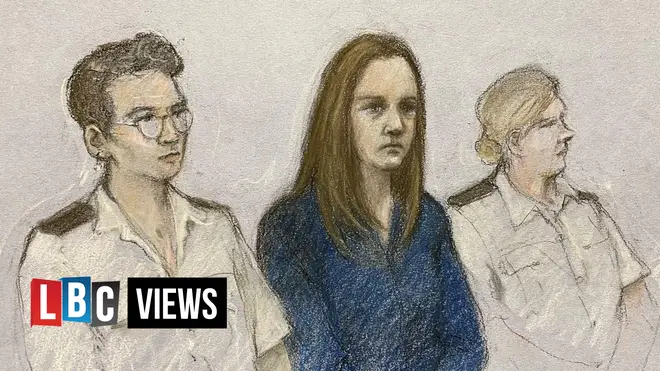
Clive Bull 1am - 4am
18 August 2023, 13:55 | Updated: 18 August 2023, 13:57

When the charges against Lucy Letby were confirmed by Cheshire Police in November 2020, the crimes she was alleged to have committed were so heinous that they were barely believable.
Sitting in court and reporting daily on the evidence told to the jury has been very challenging.
Reporting on a criminal trial that involves the murder and attempted murder of premature babies is something you cannot prepare yourself for.
When I first learned about the charges on the indictment, seven counts of murder and 10 counts of attempted murder, I knew this could be one of the most horrific criminal cases in UK criminal history.
She was facing the potential of being labelled, if found guilty on all counts, as Britain's most prolific baby killer.
Lucy Letby grew up in the cathedral city of Hereford.
She's been described by friends as "geeky" and "the quiet unassuming one" who had always wanted to be a nurse.
After leaving high school, she enrolled at the University of Chester to study nursing and qualified as a Children's Nurse in 2011.
She began working on the neonatal unit at the Countess of Chester Hospital a short time after.
During her time on the unit, she became the face of a campaign to raise £3 million to build a brand new neonatal unit.
In an interview with the Chester Standard for an article about the hospital's appeal to fund the new unit, Letby said her role involved "caring for a wide range of babies requiring various levels of support".
She worked at the neonatal unit from 2011 up until her arrest in 2018.
She still worked at the hospital while the police investigation was launched in 2017 but was taken off her regular duties and was put onto an administrative role away from the unit.
Aside from the jury and legal teams, her parents have been the only other ever-present in the courtroom, sitting to her right in the public gallery, watching over proceedings as their daughter sits motionless, sometimes almost emotionless, from behind the glass screens in the dock, flanked by the prison officers who bring her into court every day.
The sheer length of the trial has been a strain on all involved.
Ten months of proceedings reflect the number of charges Letby was facing but also the complex nature of the amount of medical evidence the jury had to get to grips with.
The biggest difficulty I have faced has been trying to put my emotions aside.
To be faced with the idea that someone, whose job it was to look after the most vulnerable children in their first days of life, would commit the crimes she was accused of doing, was hard to grasp.
As a parent myself, it was even more difficult to process.
Currently, the police officers who investigated Letby are still unsure of her exact motive.
From a human point of view, I'm not sure that I want to know what drove her to commit these crimes and murder these innocent children and cause a whole world of pain for those families.
But as a journalist, who has covered this case from almost the very beginning,
I also have an inherent fascination as to what would drive someone in her position to do what she has done.
But as the police have said, we may never know unless she decides to say.